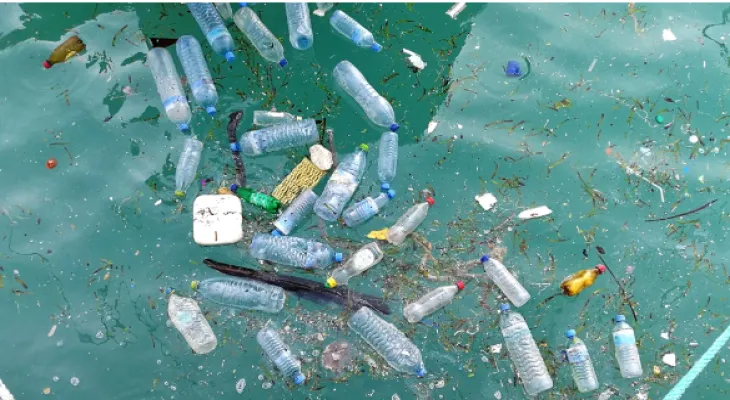Search here
Newspaper
Search here

Arab Canada News
News

Published: April 22, 2024
Scientists and experts from around the world will arrive in Ottawa in time for Earth Day today, Monday, as part of a global effort to end plastic pollution in Canada.
The fourth round of five rounds of negotiations aims to develop a legally binding international treaty on plastic pollution as part of a United Nations delegation.
The summit will be held at the Shaw Centre starting from April 23, the day after Earth Day, until April 29.
Nearly 4,000 delegates from 175 countries are expected to attend the week-long summit.
Experts are increasingly concerned about the impact of plastic pollution on the environment, particularly on marine ecosystems. Delegates are seeking to establish international regulations to eliminate the most toxic types of plastic and reduce global plastic production and consumption levels.
Rick Smith, head of the Canadian Climate Institute, said, "Plastic waste is something we need to improve."
He stated that our recycling systems are completely broken. On average across the country, only about 10 percent of plastic is recycled - the rest ends up in landfills or in the environment."
The Organization for Economic Cooperation reports that global plastic production grew from 234 million tons in 2000 to 460 million tons in 2019, while plastic waste increased from 156 million tons to 353 million tons.
Globally, nearly half of this waste ends up in landfills, one-fifth is burned, sometimes to generate electricity, and about one-tenth is recycled. More than one-fifth is "mismanaged," meaning it ends up in places it shouldn’t be.
Smith stated, "Half of the plastic ever manufactured has been produced in the last fifteen years, so we are talking about a huge increase in plastic production and use."
He added, "There’s a really good opportunity in Ottawa with the world in the city to write some new rules to tackle this kind of pollution. As Canadians, I am proud that we are hosting."
A United Nations report prepared before the second round of treaty talks in Paris last June stated that over 13,000 chemicals are used in plastic manufacturing, and that 10 groups of those chemicals are highly toxic and likely to leach from their products.
This includes flame retardants, UV stabilizers, and additives used to make plastics more rigid or water-resistant or stain-resistant.
Regional consultations will be held today, Monday, ahead of the session.
The United Nations also states that three thematic side events will be held on Wednesday and Thursday. Topics include: plastic pollution in the marine environment, enabling just transitions, capacity building and financing, and financial mechanisms.
Comments